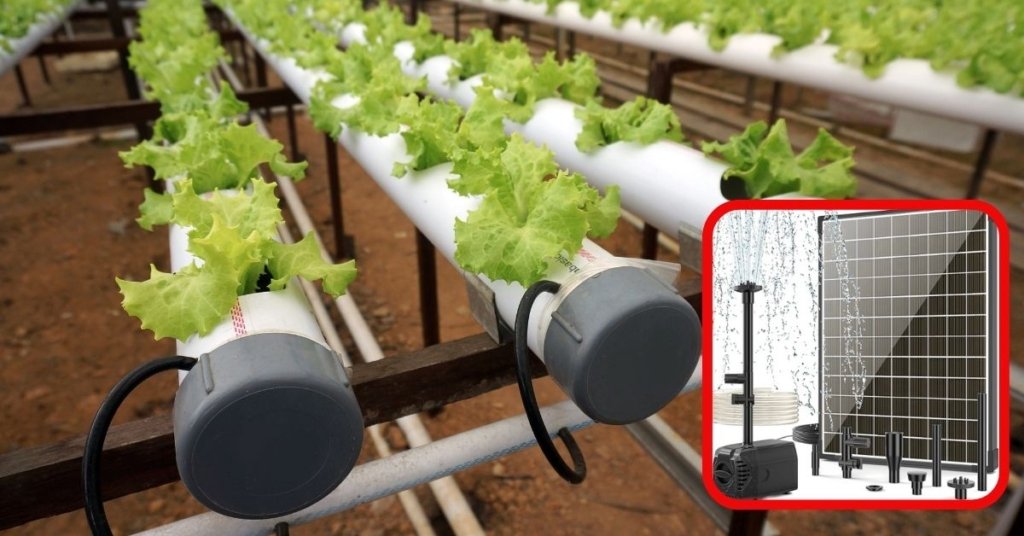Best Solar Water Pump for Hydroponics: Could a simple solar-powered device revolutionize how we grow food without soil? Farmers and eco-entrepreneurs are buzzing about this game-changer, one that promises to slash costs, save water, and make off-grid farming a reality. But is it too good to be true?
Why Solar Water Pumps Are Taking Over Hydroponics
As climate change reshapes agriculture and energy costs climb, sustainable farming practices are no longer optional; they’re essential. Enter solar water pumps: a clean, renewable solution that’s redefining how hydroponic farms operate. These systems offer an off-grid alternative that not only reduces reliance on fossil fuels but also makes hydroponics accessible in remote or rural areas where grid electricity isn’t available.
Take the case of GreenSprout Urban Farms in Phoenix, Arizona. After integrating solar-powered irrigation into their rooftop hydroponic setup, they slashed water consumption by 60% and cut operational costs dramatically. Their success story isn’t unique; farmers across arid regions are finding that solar energy provides a lifeline where traditional resources fall short.
- Best LED Work Light for Every Job Site
- Best Solar Panels For Tiny Homes For Off-Grid Freedom
- Best Solar Speaker for Mosque Azan: Crystal Clear Calls
- Best Solar Mosquito Trap for Tropics to Reclaim Your Yard
- Best Solar Car Windshield Defroster for Winter Mornings
Best Solar Water Pump for Hydroponics
Sump Transfer Water Pump with Water Hose Kit
Quiet Fountain Pump With 13.1 ft Head Lift
12V DC Submersible Well Water Pump with 10ft Cable
How Solar Water Pumps Work in Hydroponic Systems
Understanding how these systems work demystifies the “green gimmick” myth. Here’s a simple breakdown of the mechanics behind solar-powered hydroponics:

1. Solar Panel Setup
The system starts with photovoltaic panels that absorb sunlight and convert it into electricity. These panels are often mounted on rooftops or small stands beside the hydroponic beds, optimizing exposure throughout the day.
2. Water Delivery
The electricity powers a water pump that circulates nutrient-rich water directly to plant roots. In most systems, this water is recirculated, meaning it’s reused instead of wasted, keeping resource use low.
3. Automation Potential
Advanced solar pump setups integrate timers, sensors, and even IoT-enabled controllers. These tools adjust water flow based on sunlight, plant needs, and system temperature, ensuring plants never go thirsty and water is never wasted.
Top 3 Benefits You Can’t Ignore
The advantages of using solar water pumps in hydroponics go beyond environmental appeal. Here are three game-changing benefits:
- Cost Savings: Once installed, solar systems significantly reduce or eliminate monthly electricity bills. Maintenance is minimal compared to conventional pumps, offering long-term savings.
- Eco-Friendly: By running entirely on renewable energy, these systems produce zero carbon emissions and help conserve water, a critical factor as global droughts become more frequent.
- Scalability: Whether you’re nurturing a backyard herb garden or managing a large-scale vertical farm, solar pumps can be tailored to fit your needs, making them ideal for diverse applications.
For drought-prone regions, this isn’t just convenient; its revolutionary!
The Hidden Challenges (And How to Solve Them)
No technology is perfect, and solar pumps have their hurdles. But with the right strategy, most issues are easily manageable.
Upfront Costs: Yes, there are hurdles. The upfront cost can be steep, with quality solar pumps ranging from $200 to $2,000. But with energy savings, many farmers break even within 2-3 years.
Weather Dependency: Weather dependency is another concern; cloudy days can disrupt flow. The fix? Battery backups store excess energy, ensuring uninterrupted operation.
Expert Tip
Want to make every drop count? Pair your solar water pump with a drip irrigation system. This combo delivers nutrients precisely to plant roots, boosting efficiency and growth.
You can read: Sleep Anywhere, Anytime: Best Solar Generators for CPAP Machine Users Revealed.
What’s Next? Innovations to Watch
The future of solar-powered hydroponics is brighter than ever. Here are three trends poised to developments on the horizon:
1. Smart Pumps with AI Integration:
AI-powered controllers are beginning to monitor weather, plant growth, and water quality in real time, automating and optimizing every drop.
2. Government Incentives & Policy Support:
Governments around the world, including the U.S. and EU nations, are offering tax credits, grants, and rebates to farmers adopting solar-based systems. Expect more programs in the near future.
3. Fully Renewable Vertical Hydroponic Farms:
Imagine skyscraper gardens in city centers powered entirely by renewable energy. This isn’t science fiction, it’s happening. Forward-thinking startups are building solar-driven vertical farms that can feed urban populations sustainably.
Would you try a solar water pump for your hydroponic garden? It could be the key to growing smarter, greener, and more sustainably. Share your thoughts in the comments! Let’s grow the conversation together. Because the future of food may be closer (and greener) than we think.








